In recent years, the quest for enhanced mental performance has led to increased interest in nootropics—compounds believed to improve cognitive abilities in healthy individuals. Often referred to as “smart drugs” or “cognitive enhancers,” nootropics encompass a diverse array of natural and synthetic substances, each with their own proposed mechanisms of action.
While some are well-established for their cognitive-boosting effects, others remain controversial, with research ongoing to fully understand their benefits and risks.

Choosing the best nootropics is a matter of personal needs and goals, as different substances may target aspects of cognition such as memory, focus, or mood.
It’s essential to consider individual factors like existing health conditions and potential interactions with other medications.
Furthermore, considering the regulatory landscape and safety profile of these substances is crucial, ensuring that one’s cognitive enhancement endeavors are both effective and responsible.
Key Takeaways
- Nootropics are substances aimed at enhancing cognitive performance.
- The effectiveness of nootropics varies based on individual goals and health.
- Safety and regulatory considerations are critical when selecting nootropics.
What are Nootropics?

As society increasingly values mental performance, understanding nootropics—often referred to as “smart drugs”—becomes essential. They are a class of cognitive-enhancing supplements that claim to improve memory, focus, and overall brain function.
Definition and History
Nootropics are substances that enhance cognitive function, potentially improving memory, creativity, and motivation in healthy individuals. Originating from the Greek words “nous,” meaning mind, and “trepein,” to bend, these supplements have evolved from natural remedies to include synthetic alternatives.
The term was first coined in 1972 by Dr. Corneliu E. Giurgea, who outlined the criteria for substances to be classified as nootropics. He stated that they should enhance learning and resistance to brain ‘aggressions’, possess few side effects, and offer neuroprotective properties.
Types of Nootropics
Nootropics can be broadly categorized into two types: natural and synthetic.
- Natural Nootropics: These include herbal supplements and naturally derived substances that are thought to improve mental performance. Examples include caffeine, obtained from coffee beans, and ginkgo biloba, often used for memory enhancement.
- Synthetic Nootropics: These are lab-created substances that may have more pronounced cognitive-enhancing effects. Notable synthetic nootropics include piracetam, the first of the racetam family, developed originally as a sleep-aid for astronauts, and modafinil, a wakefulness-promoting agent.
Both types aim to augment cognitive processes, with synthetic options typically considered more potent but possibly accompanied by a greater risk of side effects.
How Nootropics Work
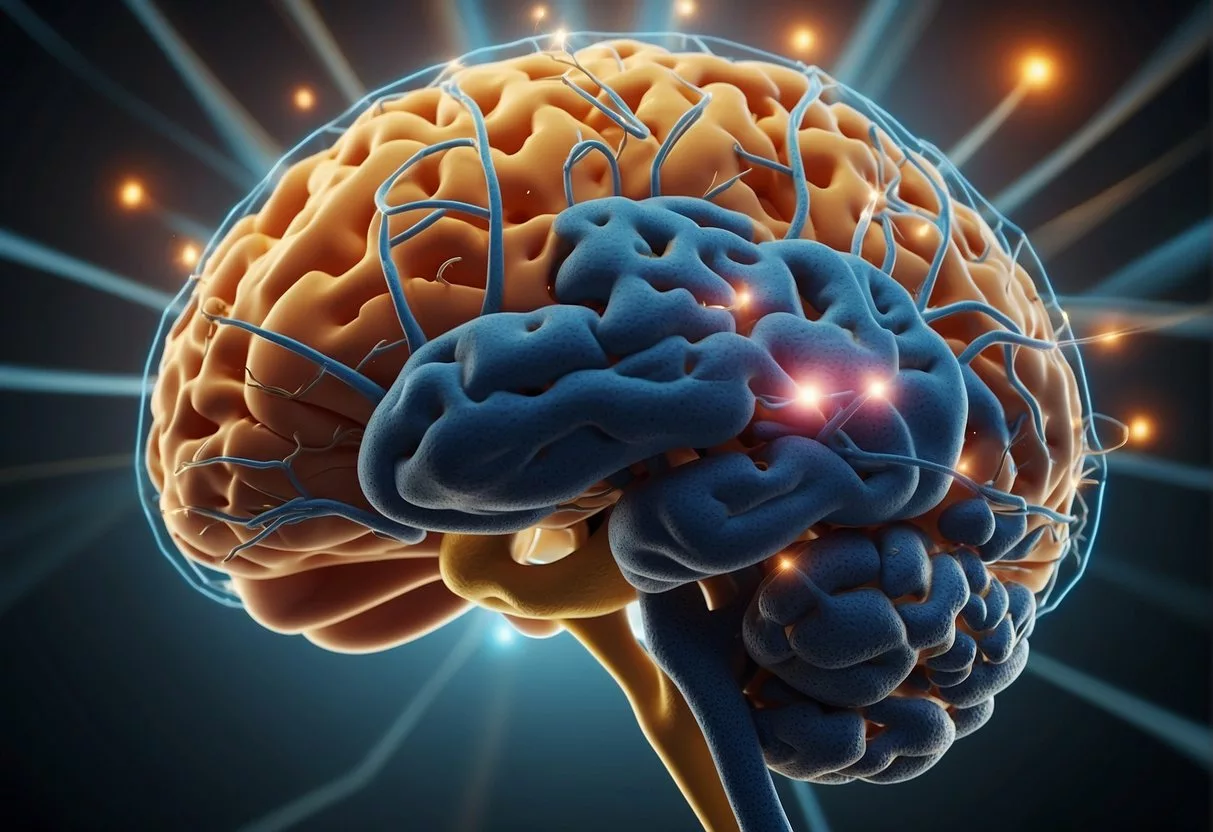
Nootropics, commonly referred to as “smart drugs,” enhance cognitive functions and brain health. They achieve this by modulating neurotransmitters, key chemicals that the brain uses to communicate between neurons.
Brain Chemistry
Brain health and function are profoundly influenced by the balance of neurotransmitters. These chemical messengers, including acetylcholine, dopamine, and serotonin, play critical roles in cognitive processes.
For instance, acetylcholine is involved in learning and memory, while dopamine influences mood and motivation, and serotonin affects mood, appetite, and sleep. An imbalance in these neurotransmitters can lead to various cognitive impairments.
Nootropic substances may promote brain health by maintaining or altering neurotransmitter levels. Brain-Derived Neurotrophic Factor (BDNF) is another crucial entity in brain health, playing a pivotal part in neuron survival and growth. Enhancing BDNF levels is seen as a positive step toward better cognitive function.
Nootropic Mechanisms
Nootropics enhance cognitive function through a variety of mechanisms:
- Modulation of Neurotransmitters: They can increase the production of neurotransmitters such as acetylcholine and dopamine, which improve cognitive functions like memory and attention.
- Neuroprotection: Certain nootropics protect the brain’s neurons from damage and oxidative stress, which can lead to improved mental agility over time.
- Enhancement of Brain Energy: By improving glucose metabolism and mitochondrial function, some nootropics provide a boost in brain energy, which leads to enhanced focus and cognition.
- Stress Reduction: By modulating stress-related neurotransmitters, certain nootropics can alleviate stress, indirectly benefiting cognitive health and function.
Benefits of Nootropics

Nootropics are compounds that may enhance brain function. They are often considered to offer cognitive and mood-related advantages, potentially aiding in an individual’s ability to process information, concentrate, and maintain mental balance.
Cognitive Benefits
- Memory: Nootropics may support the processes involved in creating and recalling memories, providing tools needed for learning and information retention.
- Focus and Attention: These supplements can aid in sharpening an individual’s focus and sustaining attention, critical for tasks that require prolonged concentration.
Nootropics may also contribute to the reduction of brain fog, enhancing mental clarity and overall cognitive function. For individuals seeking to enhance their cognitive abilities, nootropics could be a supportive option to consider.
Mood and Stress
- Mood: Certain nootropics have been suggested to positively influence mood, which can be beneficial for those seeking a mental uplift or emotional stability.
- Stress: Adaptogenic nootropics or stress-reducing compounds may lessen the impact of stress, aiding in support of the body’s stress response and contributing to a sense of well-being.
Most Popular Nootropics
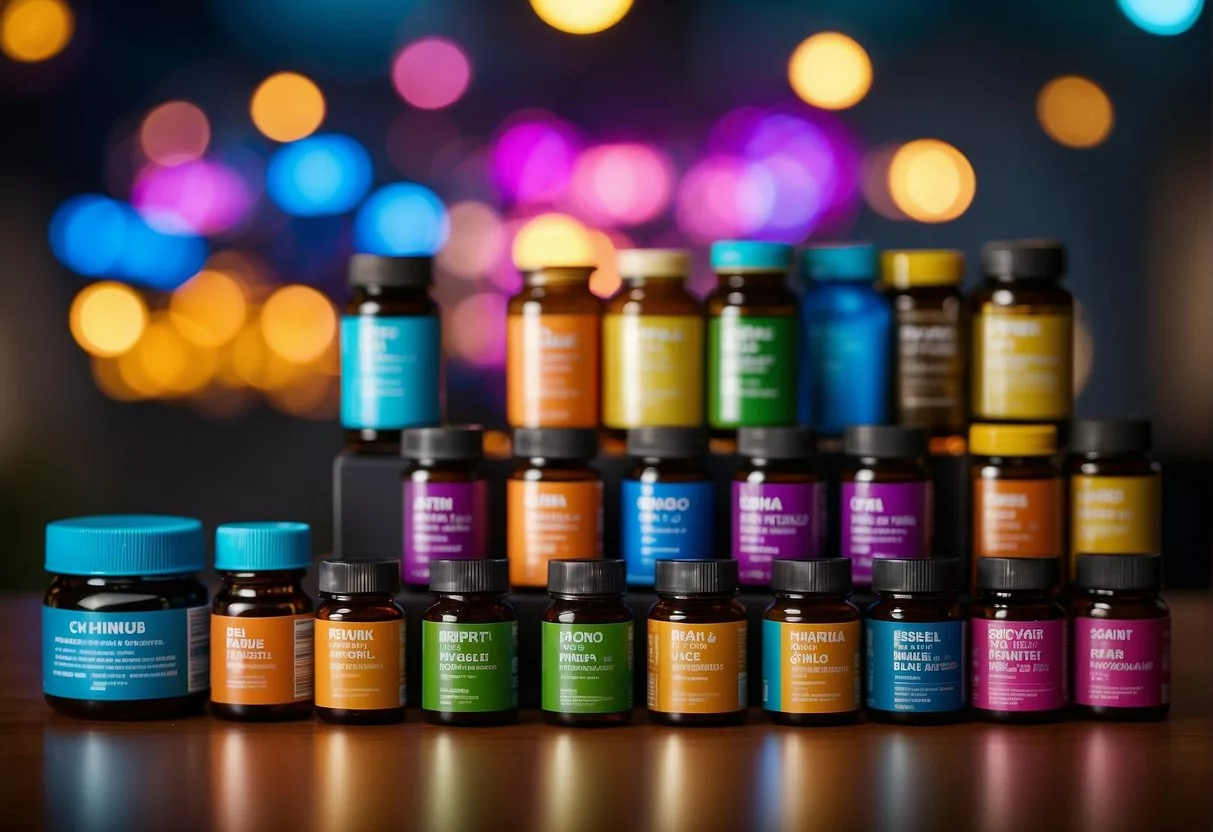
The landscape of cognitive enhancers is diverse, including both natural supplements and synthetic compounds. Each nootropic listed below has been selected based on popularity and specific cognitive benefits they may offer.
Natural Nootropics
Caffeine: Often found in coffee and tea, caffeine is one of the most widely used nootropics. It’s praised for heightening alertness and concentration.
L-Theanine: Commonly present in tea, l-theanine can promote relaxation without drowsiness, and when paired with caffeine, may enhance focus and attention.
Bacopa Monnieri: An herb traditionally used in Ayurvedic medicine, it may improve memory formation and reduce anxiety.
Ginkgo Biloba: Known for its potential to enhance blood flow to the brain and improve cognitive function, particularly in older individuals.
Rhodiola Rosea: This adaptogen may help with fatigue reduction and cognitive enhancement, especially during stress-inducing tasks.
Panax Ginseng: With its roots in traditional Chinese medicine, this nootropic claims to support brain function and combat fatigue.
Lion’s Mane: A mushroom gaining recognition for its potential to support nerve growth and cognitive health.
Synthetic Nootropics
Modafinil: A prescription drug aimed to increase alertness and reduce sleepiness, often used in conditions such as narcolepsy. It’s mentioned for its off-label use as a cognitive enhancer.
Adderall: Prescribed primarily for ADHD, Adderall contains amphetamine which can increase focus and attention. However, its non-medical use is not recommended due to potential side effects and dependency risks.
Nootropics for Specific Purposes
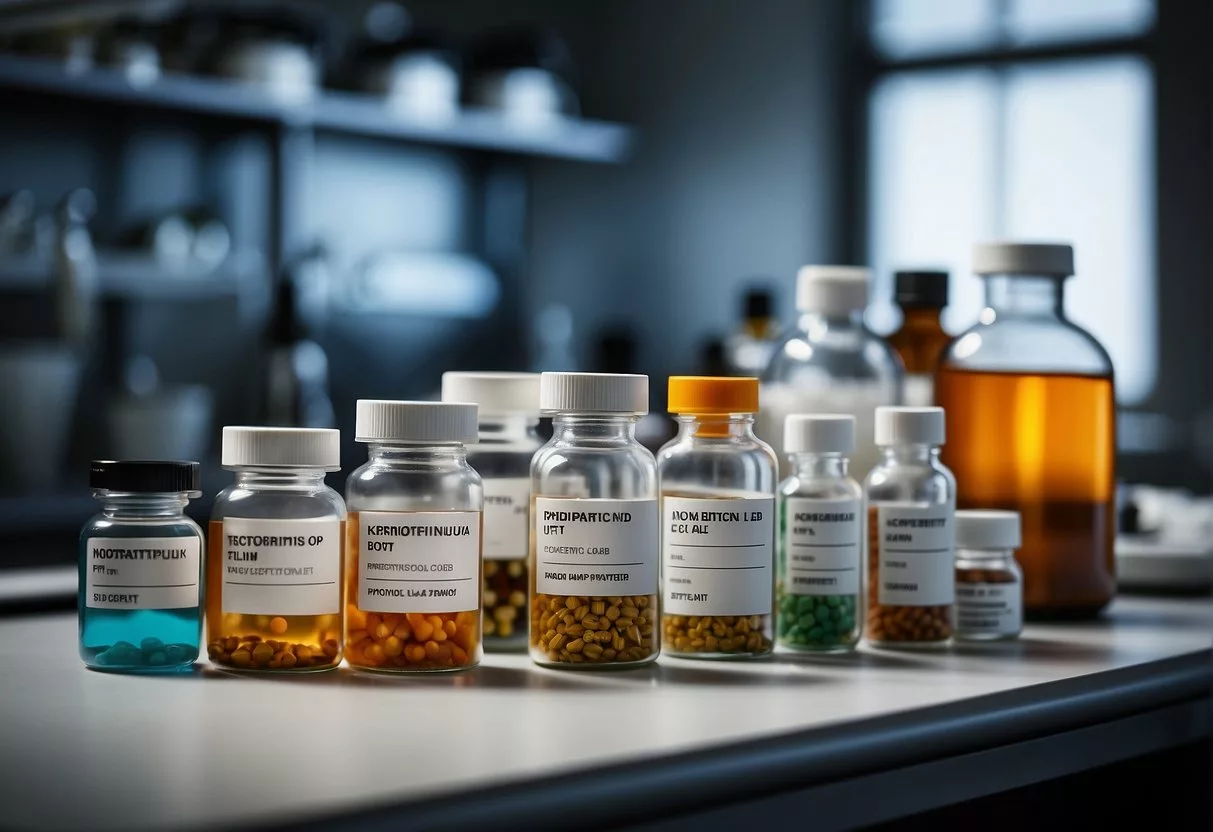
Choosing the right nootropic depends on one’s specific goals, whether it’s enhancing memory or boosting focus and creativity. Below are tailored recommendations for distinct cognitive needs.
For Memory Enhancement
For individuals looking to support memory, especially with aging, nootropics like Bacopa Monnieri have a history of use in traditional medicine for cognitive improvement. Another prominent substance, Alpha GPC, is known to increase levels of acetylcholine in the brain, which is key for memory functions.
For Increased Focus
Those seeking to enhance their focus and attention span may find success with nootropics like NooCube that combine various focus-supporting ingredients. Modafinil, often used to treat narcolepsy, is another option known for its focus-enhancing effects, though it should be used under medical supervision due to its prescription status.
For Learning and Creativity
Nootropic compounds can foster creativity and learning. These compounds promote neuroplasticity and motivation. For example, the nootropic Lion’s Mane Mushroom supports nerve growth factor, which is crucial for brain health and plasticity. Meanwhile, Rhodiola Rosea, an adaptogen, can help with both mental stamina and creative thinking.
Potential Side Effects
While nootropics are known for enhancing cognitive function, they can also present several side effects. Anyone considering these supplements should be aware of the possible physical and mental repercussions.
Physical Side Effects
Nootropics, although often considered safe, may induce several physical side effects. For example, some individuals might experience elevated blood pressure. This might necessitate medical attention. Others might also feel fatigue, contrary to the intended energy-boosting properties of many nootropics.
- Elevated blood pressure
- General fatigue or drowsiness
- Potential for gastrointestinal disturbances
It is important to monitor for signs such as dizziness or heart palpitations that could indicate problematic changes in blood pressure. Users may also feel fatigue or drowsiness as their bodies adjust to the supplement or as a result of overstimulation, leading to a subsequent energy crash.
Mental Side Effects
Mentally, nootropics can have contrasting effects, ranging from improved focus to increased levels of anxiety and mental fatigue. While some users might notice sharper cognition, others can suffer from side effects that could exacerbate depression or lead to a state of heightened nervousness.
- Increased anxiety
- Heightened mental fatigue
- Aggravation of depressive symptoms
The balance of neurotransmitters is delicate, and the introduction of nootropics can disrupt this equilibrium, hence inducing anxiety. In cases of overuse or sensitivity to specific compounds, a user might also experience mental fatigue or worsened mood. Monitoring one’s mental state and consulting a healthcare provider is crucial, particularly for individuals with pre-existing mental health conditions.
Nootropic Safety and Regulation
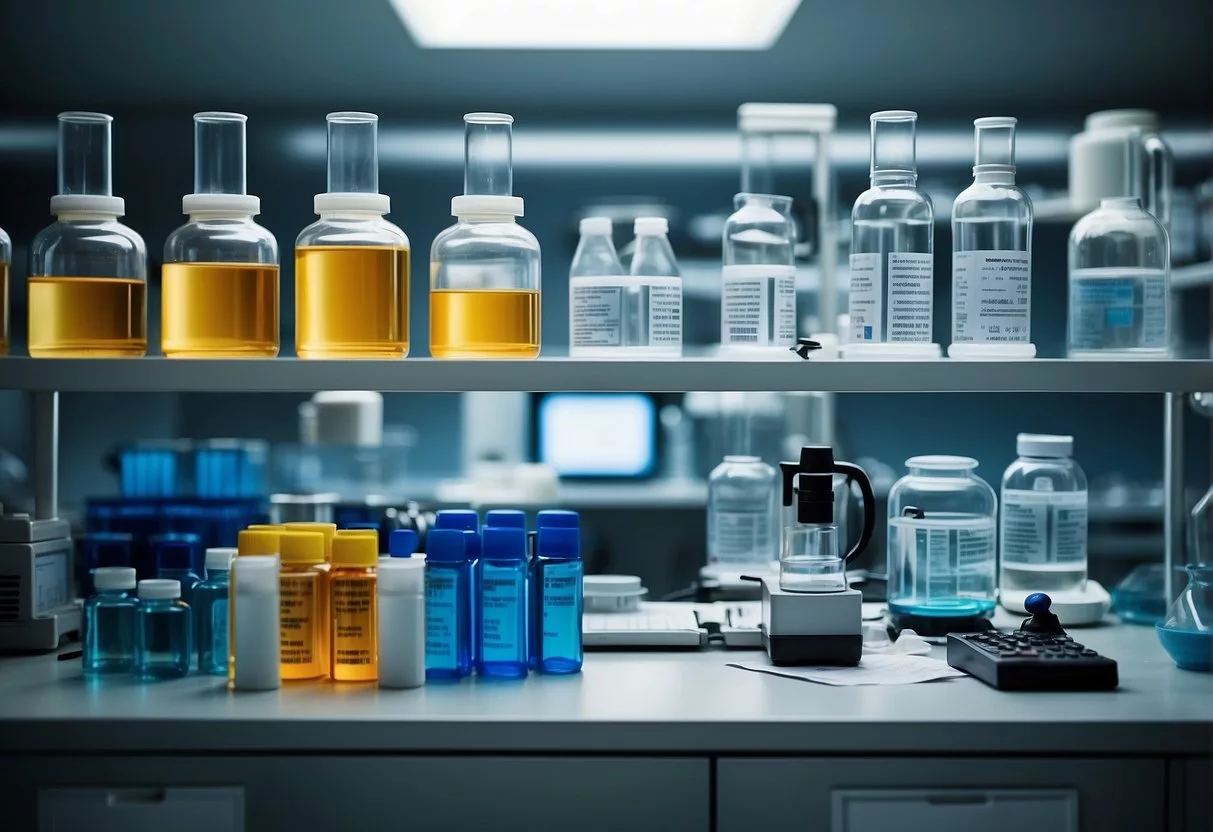
When exploring the use of nootropics, it’s crucial to consider their safety profile and how they are regulated. These factors impact the legality, quality, and potential interactions of these substances.
Legal Status
The legal status of nootropics varies by country, and within countries, it can differ from one jurisdiction to another. Some nootropics are classified as prescription medications and require a doctor’s prescription to acquire legally. For example, Modafinil is a prescription drug that is often regulated due to its potent effects on alertness. Others, like certain herbal supplements, might be available over-the-counter without the need for a prescription.
Additionally, substances like racetams, which are popular in the nootropic community for their cognitive enhancement capabilities, are not approved by the FDA. They remain unregulated as they are not classified as either dietary supplements or drugs.
As a result, they fall into a gray area where they can be sold legally but without any official sanction or acknowledgement by regulatory authorities.
Quality and Purity
The quality and purity of nootropic compounds are paramount, as impurities can lead to adverse effects or compromised safety. Users should look for products that have been third-party tested for purity. This information can help to ensure that the nootropic contains what it claims, without harmful contaminants.
For instance, the caffeine and L-Theanine stack is lauded for its synergistic effects that balance stimulation with calmness. Still, the quality of the ingredients determines the risk of side effects. Nootropic enthusiasts are often encouraged to do their due diligence and opt for reputable brands that provide transparency regarding their sourcing and manufacturing processes.
Given the concerns over safety and regulations, consumers should also be informed about the potential medication interactions that might arise from using nootropics. Many nootropic substances interact with enzymes like cytochrome P450, which can alter the metabolism of other drugs. This can potentially lead to increased side effects or decreased efficacy.
Dosage and Administration
Understanding the proper dosage and methods of administration is essential for the effectiveness and safety of nootropics. Dosages can vary based on the specific substance and the individual’s unique physiology.
Recommended Dosages
Caffeine: A commonly used nootropic, caffeine is typically effective at doses of 50-200 mg, which may help improve alertness and concentration.
Racetams: Piracetam, a popular racetam nootropic, often uses a starting dose of around 1,600 mg, taken in two or three doses throughout the day.
Note: It is crucial to follow the recommended dosages provided by healthcare professionals or as stated on the product label, as excessive intake can lead to unwanted side effects.
Methods of Administration
Nootropics can be administered in various forms:
- Oral: Pills, capsules, and powders are the most common oral forms. They offer convenience and ease of measuring precise dosages.
- Sublingual: Certain nootropics can be taken sublingually, or under the tongue, for a potentially faster onset of effects due to absorption into the bloodstream.
The choice of administration method may affect the nootropic’s reaction time, with sublingual methods possibly offering quicker cognitive enhancement than oral ingestion.
Combining Nootropics

When it comes to enhancing cognitive performance, combining nootropics in a stack can tailor the effects to an individual’s needs, taking advantage of specific ingredients that harmonize to maximize benefits.
Stacking Strategies
When crafting a nootropic stack, it’s pivotal to consider the properties and mechanisms of each component. For example, amino acids serve as essential precursors to neurotransmitters, and including them can support overall brain chemistry.
- GABA: This inhibitory neurotransmitter can help reduce anxiety and promote relaxation when stacked properly.
- Acetyl-L-Carnitine (ALCAR): Known for its role in mitochondrial energy metabolism, ALCAR can complement cognitive enhancers by fostering a supportive energy environment within brain cells.
- Citicoline: A source of choline that boosts the availability of acetylcholine, can enhance memory when combined with memory-specific supplements.
A table that categorically lists nootropics by their primary function can guide users in forming an effective stack based on their cognitive goals.
| Primary Function | Nootropic Examples |
|---|---|
| Memory | Citicoline, Phosphatidylserine |
| Energy | Acetyl-L-Carnitine, B-Vitamins |
| Mood | GABA, 5-HTP |
| Focus | Caffeine, L-Theanine |
Synergistic Effects
Synergy in nootropic stacks occurs when the combined effect of two or more components is greater than the sum of their separate effects on brain function.
- Citicoline and Phosphatidylserine are observed to have a synergistic relationship, enhancing each other’s effects in promoting neuronal membrane integrity and cognitive function.
- Certain compounds like GABA may operate more effectively within a stack, where their potential to cross the blood-brain barrier can be enhanced in the presence of other substances.
Utilizing synergistic effects not only has the potential to boost cognitive results but can also improve long-term safety and effectiveness in nootropic use.
Alternatives to Nootropics
The quest for improved cognitive function has led many to explore nootropics, yet there are non-supplement-based strategies that can equally influence brain health and mental performance. These alternatives focus primarily on lifestyle modifications and dietary adjustments conducive to neurological well-being.
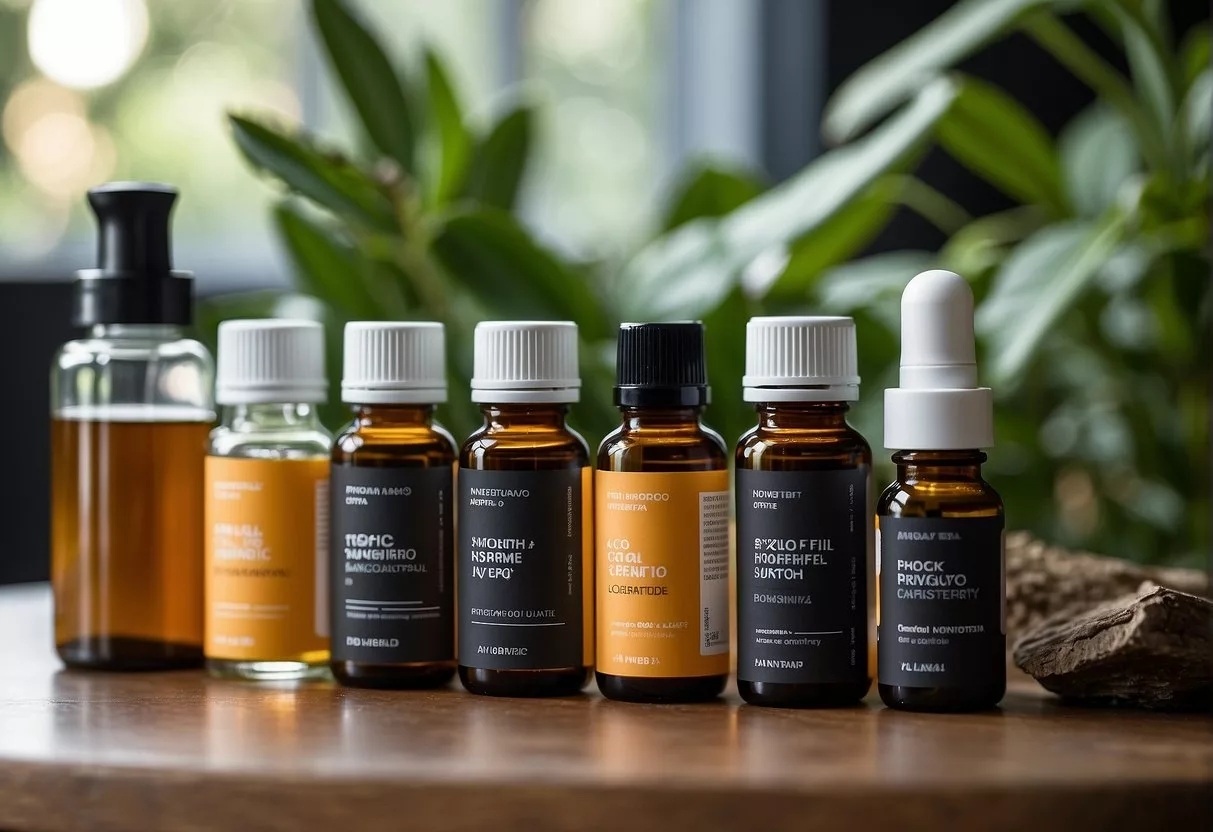
Lifestyle Changes
In the domain of cognitive health, lifestyle changes often yield profound effects without the need for dietary supplements. Key habits include consistent, restorative sleep, which is crucial for memory consolidation and overall brain function.
Regular physical exercise, particularly aerobic activities, has been shown to enhance cerebral blood flow and improve concentration. Stress management techniques such as mindfulness meditation also contribute to mental clarity and can mitigate cognitive decline.
Diet and Nutrition
When shifting focus to diet and nutrition, certain foods and dietary patterns emerge as instrumental for cognitive vitality. Consumption of omega-3 rich foods like wild salmon supports neural structure, while foods high in antioxidants such as berries combat oxidative stress.
A diet inclusive of protein-rich foods contributes to neurotransmitter production, with amino acids like creatine offering additional energy to brain cells. It’s advisable to adhere to a balanced diet that includes a variety of nutrients, which can act synergistically to enhance brain health.
Emerging Research
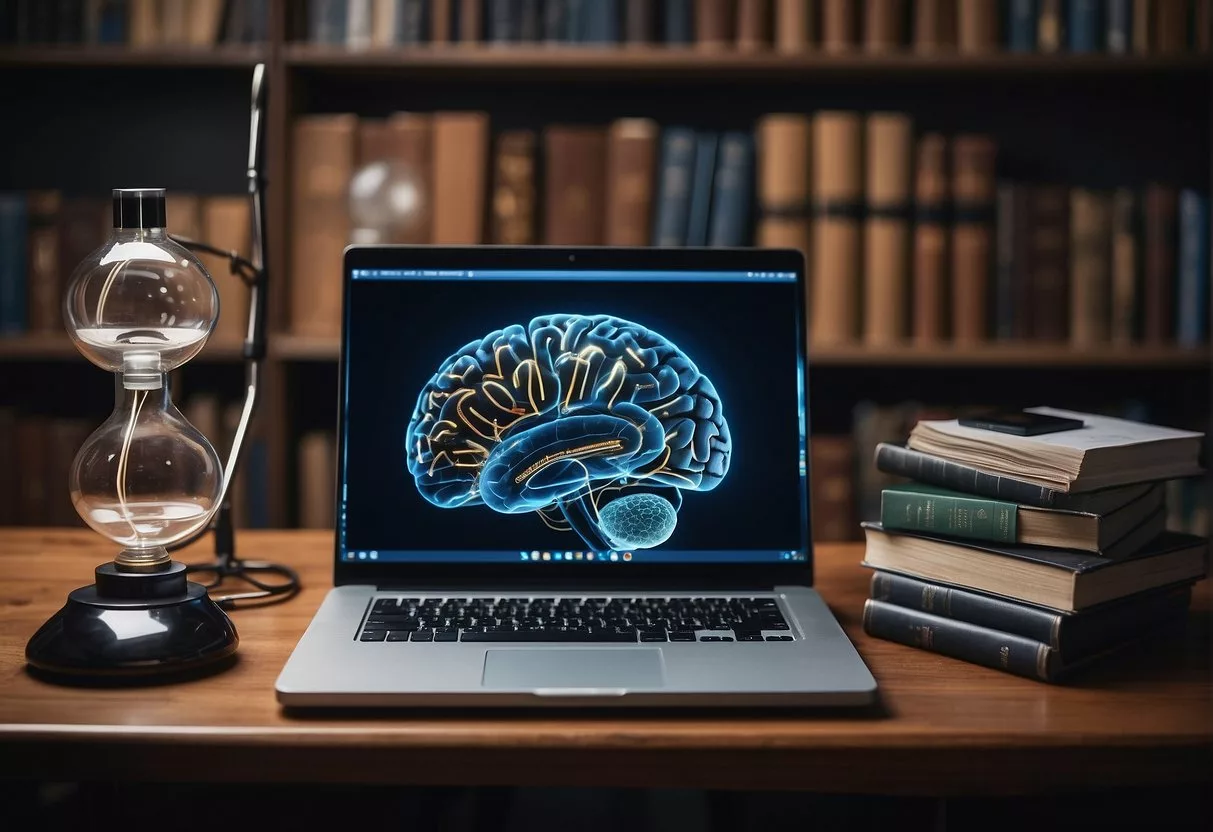
Recent advancements in nootropics research are shedding light on promising new compounds and blends, alongside significant strides in clinical trials. These developments aim to bolster cognitive function and provide neuroprotection through innovative use of neurotransmitters and other mechanisms.
New Compounds and Blends
Researchers are continually synthesizing new compounds that show potential as cognitive enhancers. For example, Piracetam, the prototype of racetam nootropics, has inspired the creation of newer analogs with the hope of improved efficacy and safety profiles.
Additionally, neurohackers are experimenting with proprietary blends that combine various nootropic substances to target multiple cognitive processes simultaneously.
A key focus is the discovery of compounds that can not only enhance cognition but also offer neuroprotection. Such substances may help guard the nervous system against a range of neurodegenerative conditions and the natural cognitive decline associated with aging.
Clinical Trials
Clinical trials are integral to establishing the safety and effectiveness of nootropic substances. They are designed to rigorously test emerging nootropics under controlled conditions.
Researchers assess their impact on various neurotransmitters and their overall contribution to cognitive health.
Recent trials have investigated a range of potential nootropics, from natural extracts to synthetic molecules. They examined their capacity to improve aspects of cognitive function, such as memory, focus, and decision-making.
As these studies progress, they generate data that helps delineate which nootropic compounds and blends are truly beneficial. This sets the foundation for evidence-based cognitive enhancement.
User Experiences
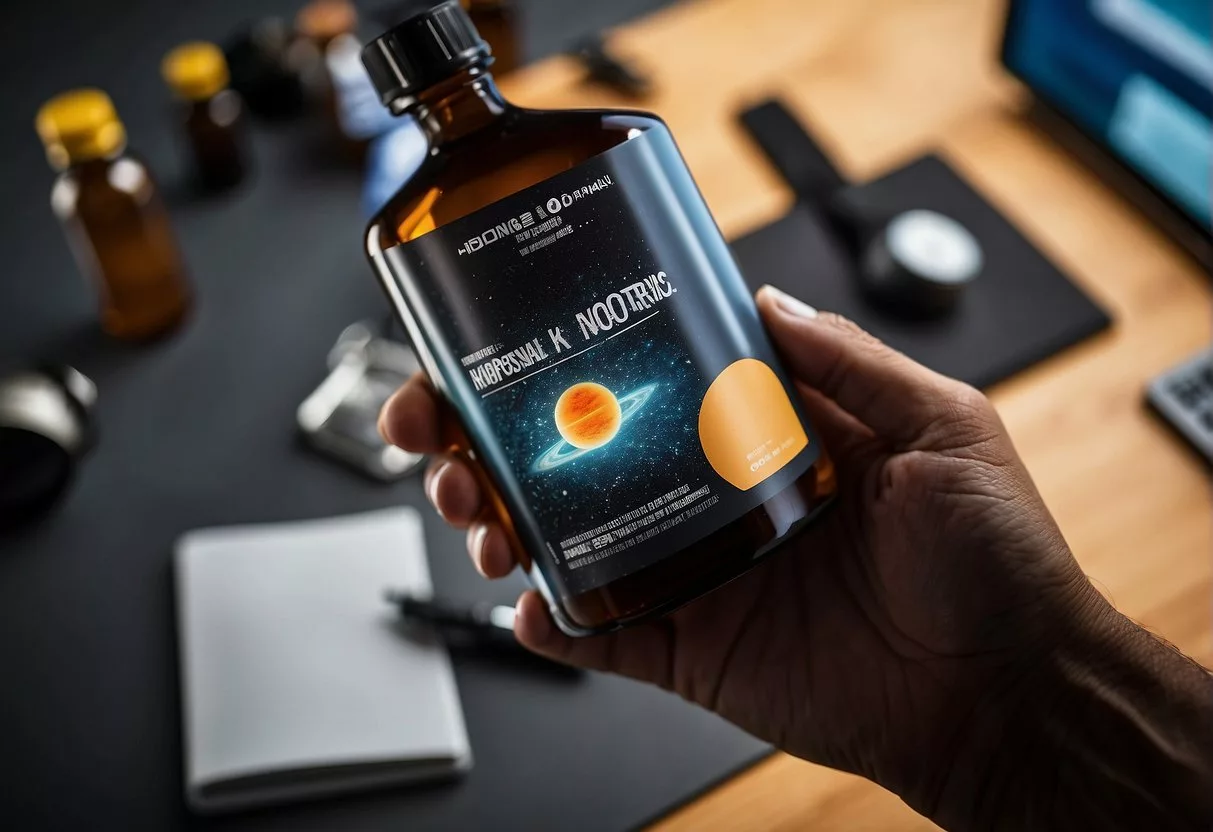
In exploring the efficacy of nootropics, user experiences can provide valuable insights. Testimonials and community support echo the personal impacts and broader acceptance of these cognitive enhancers.
Testimonials and Reviews
Users often share their positive experiences with nootropics, reporting enhanced focus and cognitive function.
For instance, feedback for Vyvamind indicates it may be particularly beneficial for individuals with ADHD. Meanwhile, another popular choice, NooCube, is commonly lauded for its ability to improve concentration.
Real-world testimonials give a glimpse into the practical benefits and potential of nootropics.
Community and Support
Support structures are vital, and the nootropic community plays an essential role in guiding new users.
Platforms like forums and social media groups facilitate the sharing of experiences and advice.
The community often discusses dosages, combinations, and schedules to optimize benefits while minimizing side effects. Open discussions within these communities help existing and prospective users make informed decisions.
Future of Nootropics
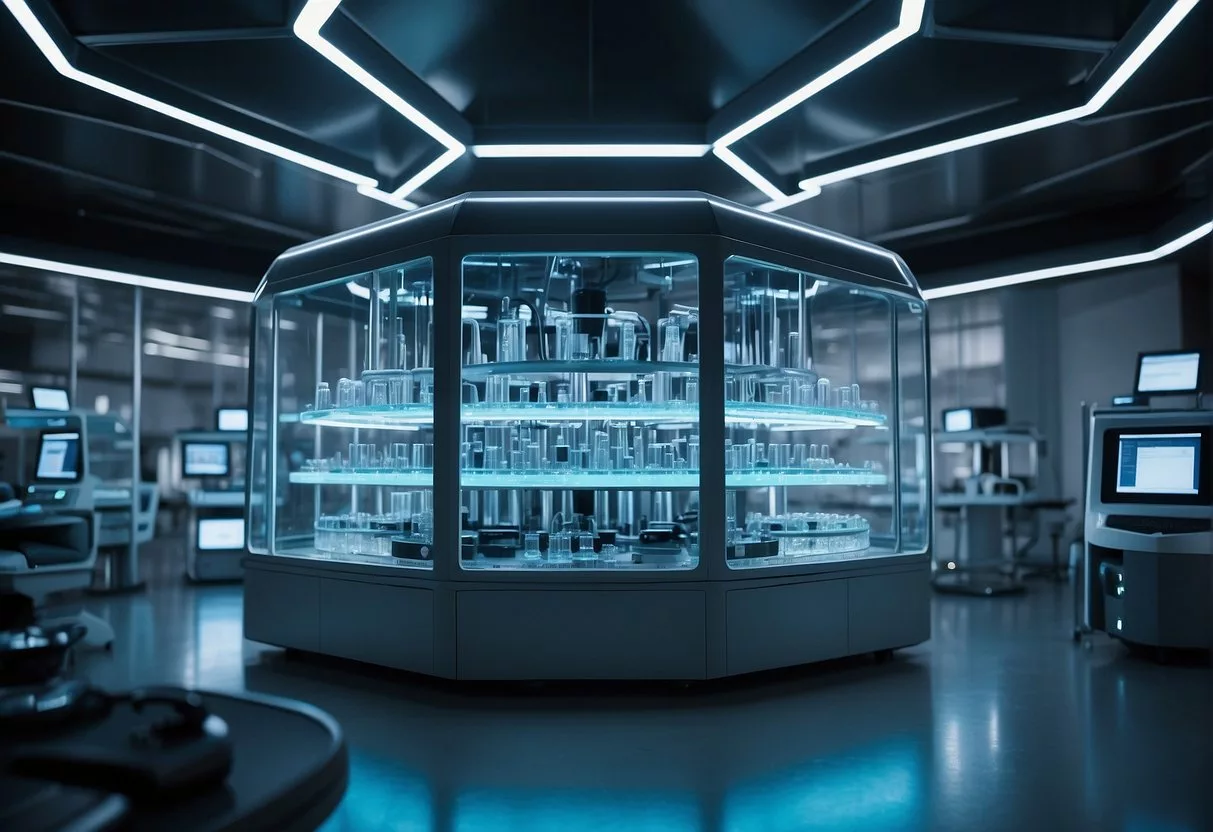
In the realm of cognitive enhancement, the future of nootropics holds promising advances in neuroscience and changing market trends that could significantly impact brain health.
Advances in Neuroscience
Researchers are consistently unveiling new insights into how nootropics interact with the brain’s wiring and chemistry.
These understandings could lead to the development of more effective cognitive enhancers with fewer side effects.
For instance, studies on compounds like Citicoline point toward its ability to enhance episodic memory. This could offer a non-invasive treatment for conditions like dementia.
Market Trends
The nootropic market responds to consumer demand with increased availability of tailored supplements.
A surge in preference for caffeine-free nootropic options, such as Onnit Alpha Brain, indicates a move towards more specific, health-conscious products.
Furthermore, the rise in popularity of ready-to-consume nootropic drinks suggests a shift towards convenience in brain health supplementation.
Frequently Asked Questions
The following section addresses some of the most commonly asked questions about nootropics, highlighting their efficacy, safety, and advancements in 2024.
What are the most effective nootropics for enhancing memory?
The most effective nootropics for memory enhancement are those that support neuroplasticity and neurotransmitter levels, such as Bacopa monnieri and Phosphatidylserine.
Which nootropics are recommended for improving focus during study sessions?
For improving focus, nootropics like L-Tyrosine and L-Theanine are frequently recommended.
This is because they can boost concentration and reduce stress without overstimulation.
Are there specific nootropics that have shown efficacy for individuals with ADHD?
Certain nootropics, including Omega-3 fatty acids and Zinc, have been observed to support cognitive functions in individuals with ADHD. This contributes to improved attention spans and behavioral control.
How do reputable nootropic brands compare in terms of results and safety?
Reputable nootropic brands often offer products that are backed by clinical research and quality testing. This ensures both effective results and a high safety profile.
Can nootropics be used on a daily basis without adverse effects?
While many nootropics are considered safe for daily use, individuals should consult with a healthcare professional to tailor their regimen to their specific needs and minimize the risk of adverse effects.
What are the latest advancements in nootropics as of 2024?
In 2024, advancements in nootropics include innovations in delivery systems. They also found novel compounds that offer enhanced cognitive benefits.